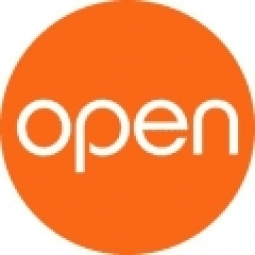Enhancing Healthcare Data Security with Avigilon Alta's IoT Solution: A Case Study on GeBBS Healthcare Solutions


Technology Category
- Cybersecurity & Privacy - Security Compliance
- Infrastructure as a Service (IaaS) - Cloud Databases
Applicable Industries
- Glass
- Healthcare & Hospitals
Applicable Functions
- Quality Assurance
Use Cases
- Leasing Finance Automation
- Tamper Detection
Services
- System Integration
The Customer
GeBBs
About The Customer
GeBBS Healthcare Solutions is a leading provider of revenue cycle management (RCM) and health information management (HIM) solutions. The company provides end-to-end solutions to healthcare providers, including hospitals, integrated delivery networks, and large physician groups. GeBBS helps clients improve operational efficiency, enhance revenue, and maintain compliance with regulatory requirements. With offices located internationally, the company has a diverse workforce and a wide range of visitors, including vendors and contractors, visiting their offices regularly.
The Challenge
GeBBS Healthcare Solutions, a global provider of healthcare revenue cycle management (RCM) and health information management (HIM) solutions, was faced with the challenge of securing their office and ensuring compliance with HIPAA standards. The company handles a significant amount of private healthcare data, making it crucial to have a robust access control solution. With offices located internationally, GeBBS had to manage the constant inflow and outflow of employees and visitors at their Culver City headquarters. The company sought a solution that would not only provide stringent security but also offer the flexibility to grant temporary access to visitors and keep a record of all individuals entering the office.
The Solution
GeBBS found the solution to their challenge in Avigilon Alta's mobile and cloud-based access control system. This system was designed with security as a priority, helping GeBBS to remain compliant with all their requirements, including HIPAA. The solution is managed from a single pane of glass, streamlining security operations. One of the key features of the Avigilon Alta system is the Guest Pass feature, which allows GeBBS to grant temporary access to visitors simply by clicking on a link from a text. This eliminated the need for physical key cards, making the process more efficient and secure. Furthermore, the cloud-based nature of the system meant that GeBBS could manage their system from anywhere, without the need to be physically present in the office.
Operational Impact

Case Study missing?
Start adding your own!
Register with your work email and create a new case study profile for your business.
Related Case Studies.

Case Study
Hospital Inventory Management
The hospital supply chain team is responsible for ensuring that the right medical supplies are readily available to clinicians when and where needed, and to do so in the most efficient manner possible. However, many of the systems and processes in use at the cancer center for supply chain management were not best suited to support these goals. Barcoding technology, a commonly used method for inventory management of medical supplies, is labor intensive, time consuming, does not provide real-time visibility into inventory levels and can be prone to error. Consequently, the lack of accurate and real-time visibility into inventory levels across multiple supply rooms in multiple hospital facilities creates additional inefficiency in the system causing over-ordering, hoarding, and wasted supplies. Other sources of waste and cost were also identified as candidates for improvement. Existing systems and processes did not provide adequate security for high-cost inventory within the hospital, which was another driver of cost. A lack of visibility into expiration dates for supplies resulted in supplies being wasted due to past expiry dates. Storage of supplies was also a key consideration given the location of the cancer center’s facilities in a dense urban setting, where space is always at a premium. In order to address the challenges outlined above, the hospital sought a solution that would provide real-time inventory information with high levels of accuracy, reduce the level of manual effort required and enable data driven decision making to ensure that the right supplies were readily available to clinicians in the right location at the right time.

Case Study
Gas Pipeline Monitoring System for Hospitals
This system integrator focuses on providing centralized gas pipeline monitoring systems for hospitals. The service they provide makes it possible for hospitals to reduce both maintenance and labor costs. Since hospitals may not have an existing network suitable for this type of system, GPRS communication provides an easy and ready-to-use solution for remote, distributed monitoring systems System Requirements - GPRS communication - Seamless connection with SCADA software - Simple, front-end control capability - Expandable I/O channels - Combine AI, DI, and DO channels

Case Study
Driving Digital Transformations for Vitro Diagnostic Medical Devices
Diagnostic devices play a vital role in helping to improve healthcare delivery. In fact, an estimated 60 percent of the world’s medical decisions are made with support from in vitrodiagnostics (IVD) solutions, such as those provided by Roche Diagnostics, an industry leader. As the demand for medical diagnostic services grows rapidly in hospitals and clinics across China, so does the market for IVD solutions. In addition, the typically high cost of these diagnostic devices means that comprehensive post-sales services are needed. Wanteed to improve three portions of thr IVD:1. Remotely monitor and manage IVD devices as fixed assets.2. Optimizing device availability with predictive maintenance.3. Recommending the best IVD solution for a customer’s needs.

Case Study
HaemoCloud Global Blood Management System
1) Deliver a connected digital product system to protect and increase the differentiated value of Haemonetics blood and plasma solutions. 2) Improve patient outcomes by increasing the efficiency of blood supply flows. 3) Navigate and satisfy a complex web of global regulatory compliance requirements. 4) Reduce costly and labor-intensive maintenance procedures.

Case Study
Cloud-based healthcare solution for Royal Philips
Royal Philips wanted to launch its cloud-based healthcare solution HealthSuite Digital Platform in China to deliver services to help cope with challenges related to urbanization and population growth. Philips wanted to achieve this goal by combining mobile, cloud computing and big data technologies. To bring this platform and product to market, Philips required cloud computing and local technical service capabilities in China, in addition to a flexible IT infrastructure that could handle user requests.







